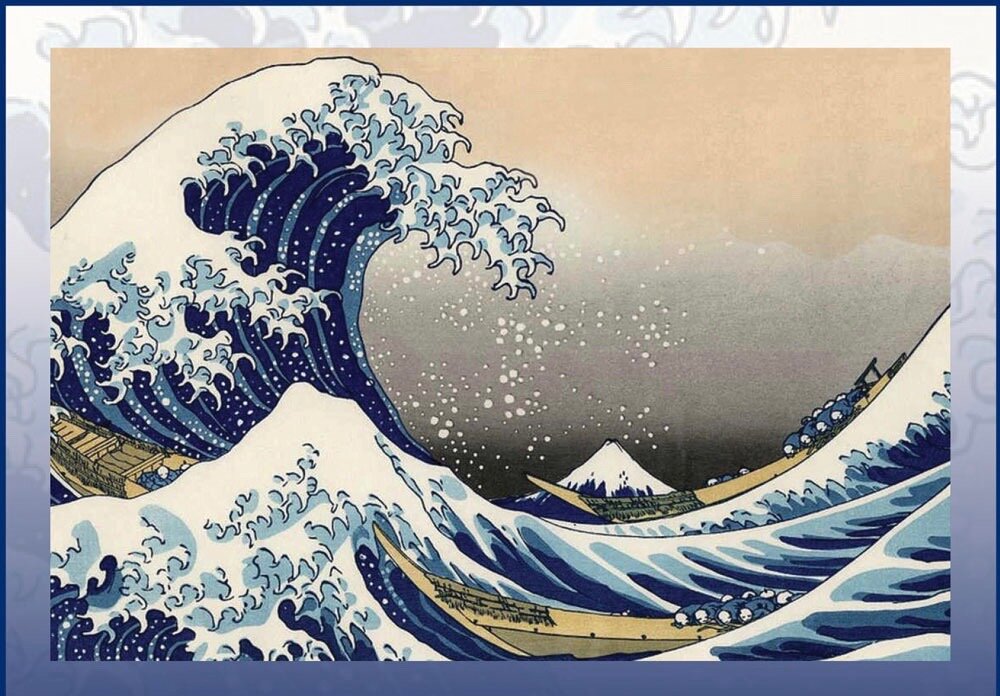Having just returned from a 10 day concentration retreat, I find my tendency this morning is to sit and stare out the window. The morning is blissfully quiet of my little part of the world. A bird sings softly from time to time and then falls silent. The water on the distant bay is quiet, the air is still with just the gentlest of breezes. Even the workmen across the green have accidentally lapsed into silence. All of this will change shortly, I’m sure. But for the moment the peacefulness of the morning matches my mind and we sit together - the morning and I - in perfect harmony.
That is not to say that I spent the last 10 days in blissful silence. Far from it. The tumult in my mind at times was deafening. The effort of concentration was at times exhausting.
All that was worth it for the moments of absolute stillness, of actually looking into my mind and realizing that my mind was still, even empty. There was only one thought and it was the one I was thinking about my practice at that moment. And that one thought disappeared and after a space another thought about my practice would arise.
What this moment of complete stillness revealed to me was how much my mind is filled, not just with the foreground thoughts of what I’m doing, going to do, have done, but how behind all of that, was a low level morass of unconscious or semiconscious thoughts, memories, anticipations, fears, stories and fantasies, planning, mind states simmering and jumbling along like litter in a breeze, momentarily distracting or outright commandeering the thought process in a new direction.
Leigh Brassington, one of my teachers on this retreat, says that only 20 percent of our thoughts come from an external stimulus - a sight, sound, bodily sensation, smell, taste. What the Buddha called the sense doors. The other 80 percent is what our minds do with that stimulus. (He says he read that somewhere, as have I. Neither of us can remember where.) Whether the proportions are verifiable or not, we all know the experience of all that mental activity sometimes interfering with our ability to see what’s in front of us.
That’s why this initial feeling or feeling tone we’ve been talking about for the past few weeks is so important. To review, when any experience first arises - a sight, a sound, a thought, whatever - there is an initial feeling of liking, disliking or neither liking or disliking, what we have been calling positive, negative or neutral. And following that initial feeling tone are a string or crowd or stampede of thoughts, feelings, mind states, memories all sparked by that feeling tone. To make matters worse, each of those reactive thoughts have their own feeling tone and stimulate other thoughts, reactions, emotions, memories which have their own feelings tones….etc. My teacher called them down-stream thoughts. The Buddha called this proliferation of thoughts papança (pronounced PA-PA’-N-CHA). It sounds like a huge bag of mail falling down steps, breaking open, and scattering in all directions.
The stronger the feeling tone, the greater the downstream proliferation of thoughts will be. And since these thoughts barely subside into turbulent little eddies before the next stimulus occurs, it’s a small wonder our minds function at all!
The Buddha asks us to pay attention to these feeling tones. The proliferation is not inevitable. It is a product of inattention. With awareness, mindfulness, we can see the initial feeling tone and hold it in awareness. Under the light of this shining awareness, the feeling tone is seen as just that, a feeling tone. And the proliferation ceases.
It’s a process however. And one that needs to be repeated, and repeated, and repeated, until this awareness becomes more established and arises more quickly to hold the feeling tone.
The Buddha’s words as quoted by Joseph Goldstein tell us exactly what we do with these feeling tones when we don’t pay attention to them: “Being contacted by painful feeling one seeks delight in sensual pleasure. [Here he means pleasure of the senses.] For what reason? Because the uninstructed worldling does not know of any escape from painful feelings other than sensual pleasure.”
Does this sound familiar?

